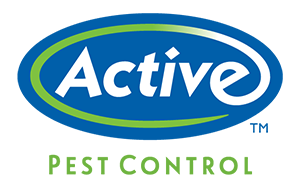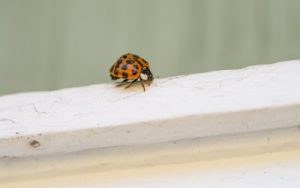
Does it seem like there are more insects in your home during the fall and winter? Unfortunately, it’s not your imagination. It’s fall pests looking for ways to get out of the increasingly cold weather. Some of these fall pests will migrate to warmer climates or burrow under debris, but others may decide they want to spend the winter in your warm, dry home. This phenomenon is referred to as overwintering, and it pays to look for warning signs before you end up with an infestation in your home.
Finding a bug on the countertops or in the corners of a room in your home is no fun. However, what’s even worse and could cause even more damage, are the pests hiding where you can’t see them. The fall pests most likely to take refuge here can include Asian Lady beetles, stink bugs, termites, wasps, and rodents. Let’s learn more about how and why these pests may try to get into your home.
Fall Pest #1: Asian Lady Beetles
If you find what looks like a ladybug in your home, it may not be a ladybug. If it’s larger than your garden-variety ladybug, you may be looking at an Asian Lady beetle (which may or may not have spots). And if you’ve found one, the odds are good that it’s not alone. Asian Lady beetles travel together in groups, using pheromones to communicate their location. That means that if one comes into your home to get out of the cold, the result can be an infestation. These bugs may not eat the wood in your home’s structure or sting its residents, but their waste can stain as well as trigger an allergic reaction or breathing difficulties in sensitive individuals. You can prevent this, along with most other fall pest infestations, by making sure you seal any gaps or openings in the exterior of your home.
Fall Pest #2: Stink Bugs
The species of stink bug you’re most likely to encounter in your home in the US is the Brown Marmorated stink bug, which is an invasive non-native species from Asia. They’re flat and shaped like a shield, colored in mottled shades of brown and gray, and range in size from around ¼” to ⅜”. They’re fond of quiet, out-of-the-way parts of your home like the attic or crawlspace, or anywhere else where they won’t be bothered. If they get discovered and feel threatened (or squashed), they’ll release a deeply unpleasant odor, which is where this insect gets its name.
Fall Pest #3: Termites
Termites are easily the most destructive pest in the US. The annual cost of termite damage and mitigation in the US is estimated at up to $30 billion. Termites, if you have them, are always trying to enter your home. But fall and winter is when subterranean termites – the most damaging species – tend to burrow deep into the ground to wait out the cold weather. So if you have an infestation you may not notice it until spring. And at that point, the nest, and the damage, could be much more extensive. Once termites can get in your home, they will consume wood and anything else that contains cellulose. Signs of termites in your home may include blisters on painted surfaces, hollow-sounding wood, and unexplained pinhole-sized holes.
Fall Pest #4: Rodents
Squirrels, roof rats, and mice are all agile creatures and excellent climbers. You’ve surely seen them make their way from branch to branch or along narrow fences. It shouldn’t come as a surprise they can get into your attic and make a nest. Luckily these rodents don’t tend to be very stealthy. After some time you’ll hear them scratching or gnawing from up above or inside the walls. Those are both good signs that you have a rodent inside your attic or wall voids, and that means it’s time to call an experienced rodent exterminator like Active Pest Control
Fall Pest #5: Wasps
Wasp colonies do not overwinter in the colder season, which leaves the workers to die with the oncoming winter. Fertilized queens, however, survive the cold outdoors and leave the nest for shelter like hollow logs, tree stumps – or in certain structures, like the attic of your home. Here’s a question for you. How sure are you that your attic vents are all screened from the outdoors? If you’re not very sure, consider calling us to inspect your attic and install them for you. They can prevent wasps, birds, and all manner of creatures from making themselves comfortable without you knowing.
Top Exterminators for Fall Pests
Active Pest Control has been proud to provide Georgia residents with quality pest control services for over 35 years. If you have some unwelcome fall pests in your home, Active Pest Control is ready to help. Contact us now for a free quote!

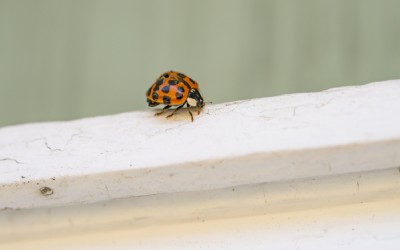
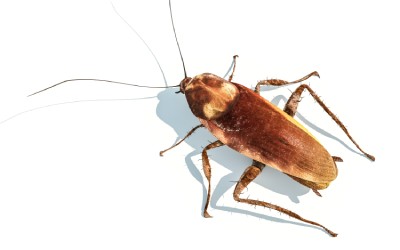
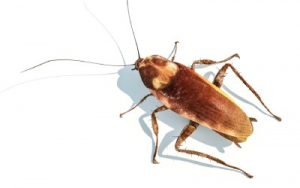
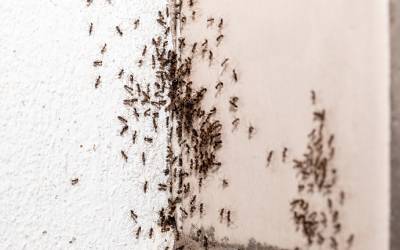
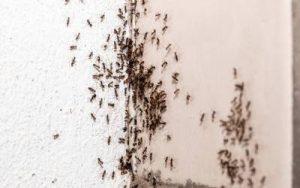
 Spring and summer in Georgia come with a lot to be excited about. However, the warm weather and sunshine following rainfall lead to all kinds of pest problems in our region. It’s important to be able to stop pests from finding food sources, shelter, and breeding grounds in your backyard, because without any effort put into pest prevention, your background will be overrun with pests for most of the year. If you’re wondering how you can pest-proof your backyard, read on for advice from our expert exterminators at Active Pest Control!
Spring and summer in Georgia come with a lot to be excited about. However, the warm weather and sunshine following rainfall lead to all kinds of pest problems in our region. It’s important to be able to stop pests from finding food sources, shelter, and breeding grounds in your backyard, because without any effort put into pest prevention, your background will be overrun with pests for most of the year. If you’re wondering how you can pest-proof your backyard, read on for advice from our expert exterminators at Active Pest Control!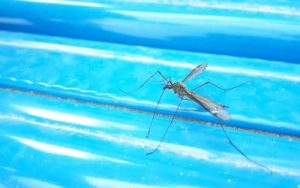 Do you consider yourself a “mosquito magnet?” While it seems that some of us are much more favorable to
Do you consider yourself a “mosquito magnet?” While it seems that some of us are much more favorable to 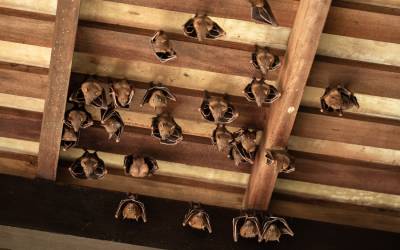 No matter where you are—in the living room with your family or in bed at night—hearing noises and movement in your attic is frightening. While some may believe they are living the plot of a horror movie, the reality is that their home is being infested by nuisance wildlife. An attic is a popular place for wild animals to shelter, as they gain access to our homes through the roof. It goes without saying that no one wants animals taking up residence in their attic.
No matter where you are—in the living room with your family or in bed at night—hearing noises and movement in your attic is frightening. While some may believe they are living the plot of a horror movie, the reality is that their home is being infested by nuisance wildlife. An attic is a popular place for wild animals to shelter, as they gain access to our homes through the roof. It goes without saying that no one wants animals taking up residence in their attic.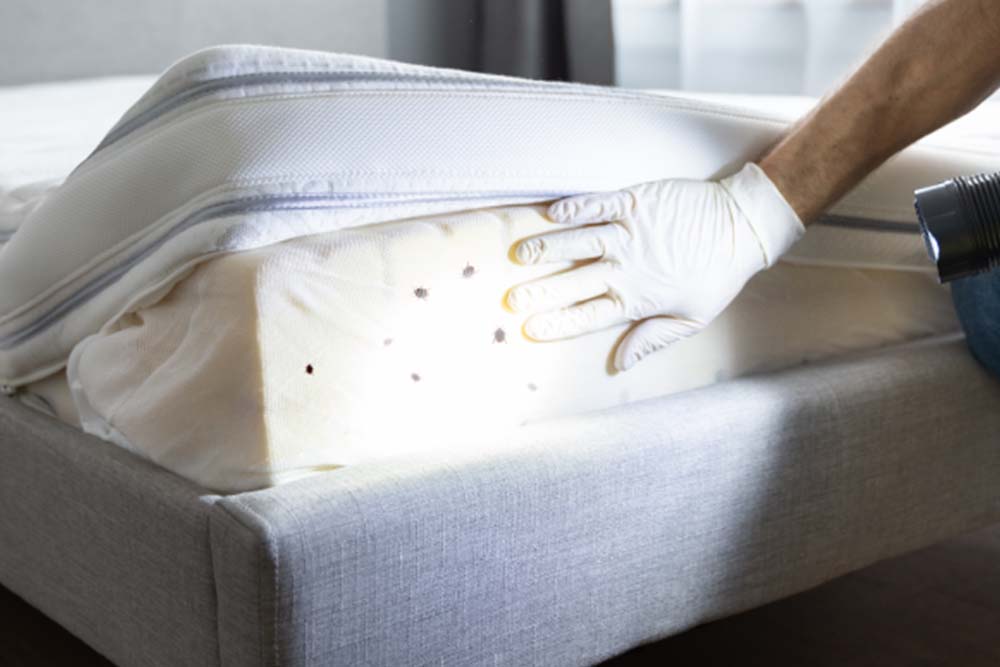
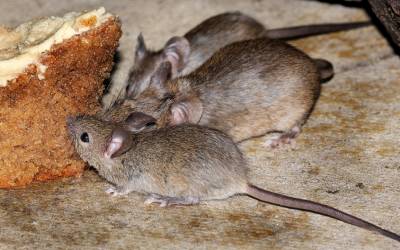 Do you think you have
Do you think you have 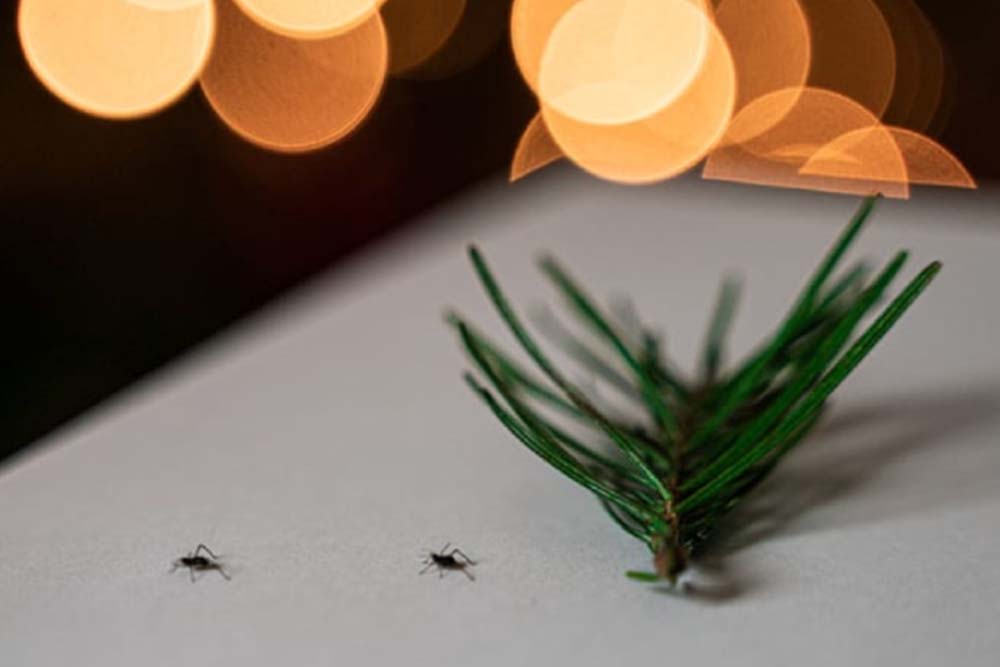 Imagine the following: You are sitting on your couch, enjoying your Hallmark Christmas movie when all of a sudden you are overrun by countless numbers of bugs and other creepy crawlies! While this may sound like a scene straight from a horror movie, it is actually a very real possibility. Live Christmas trees that are brought inside are a thriving ecosystem for certain insects and spiders. In fact, entomologists have reported that a single tree can contain up to 25,000 insects at a time. No one wants to deal with a pest infestation in their homes, especially during the holidays. To learn how to prevent Christmas tree insects in your Atlanta GA home this holiday season, read on for tips with Active Pest Control!
Imagine the following: You are sitting on your couch, enjoying your Hallmark Christmas movie when all of a sudden you are overrun by countless numbers of bugs and other creepy crawlies! While this may sound like a scene straight from a horror movie, it is actually a very real possibility. Live Christmas trees that are brought inside are a thriving ecosystem for certain insects and spiders. In fact, entomologists have reported that a single tree can contain up to 25,000 insects at a time. No one wants to deal with a pest infestation in their homes, especially during the holidays. To learn how to prevent Christmas tree insects in your Atlanta GA home this holiday season, read on for tips with Active Pest Control!